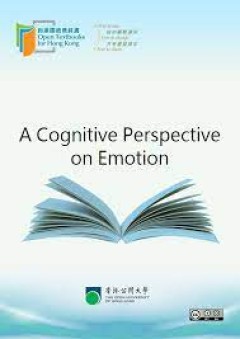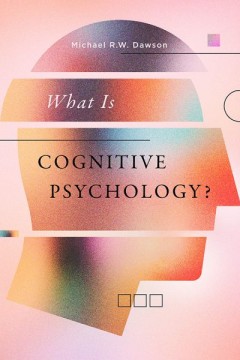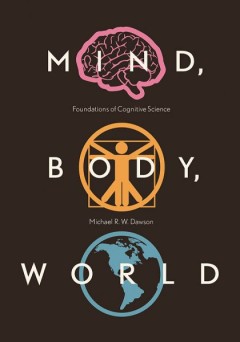Filter by

Connectionist Representations of Tonal Music Discovering Musical Patterns by…
Intended to introduce readers to the use of artificial neural networks in the study of music, this volume contains numerous case studies and research findings that address problems related to identifying scales, keys, classifying musical chords, and learning jazz chord progressions. A detailed analysis of the internal structure of trained networks could yield important contributions to the fiel…
- Edition
- -
- ISBN/ISSN
- 9781771992206.01
- Collation
- -
- Series Title
- -
- Call Number
- 6 x 9, 312 pages

Whistled Languages A Worldwide Inquiry on Human Whistled Speech
The main focus of this monograph on whistled speech is the result of a worldwide inquiry primarily based on the author’s unprecedented fieldwork and laboratory experience. The different questions raised by the origin and the evolution of whistled forms of languages are also explored, including the role of environmental constraints in the emergence of whistled speech, their phonetic and phonol…
- Edition
- -
- ISBN/ISSN
- 978-3-662-45837-2
- Collation
- IX, 182
- Series Title
- -
- Call Number
- -

The Human Face of Ambient Intelligence
humanities. It is divided into two main parts: Part 1 is about different permutations of enabling technologies as well as core computational capabilities, namely context awareness, implicit and natural interaction, and intelligent behavior. It details the existing and upcoming prerequisite technologies, and elucidates the application and convergence of major current and future computing trends.…
- Edition
- -
- ISBN/ISSN
- 978-94-6239-130-7
- Collation
- XXXII, 523
- Series Title
- Atlantis Ambient and Pervasive Intelligence
- Call Number
- -

A Cognitive Perspective on Emotion
"A Cognitive Perspective on Emotion" is one of the free open textbooks for Tertiary level. Feel free to use, adapt and modify the content to your own needs, and share the improved content with others because the book is offered under Creative Commons (CC) license. It allows users to repurpose the materials under the condition that original authors’ contribution is acknowledged.
- Edition
- -
- ISBN/ISSN
- -
- Collation
- -
- Series Title
- -
- Call Number
- 152.4 PET c

Memory Development from Early Childhood Through Emerging Adulthood
Based on decades of established research findings in cognitive and developmental psychology, this volume explores and integrates the leading scientific advances into infancy and brain-memory linkages as well as autobiographical and strategic memory. In addition, given that the predominantly classic research on memory development has recently been complemented by more cutting-edge applied resear…
- Edition
- 1
- ISBN/ISSN
- 978-3-319-09610-0
- Collation
- Springer International Publishing Switzerlan
- Series Title
- -
- Call Number
- -

Feeling and Value, Willing and Action Essays in the Context of a Phenomenolo…
This volume explores the role and status of phenomena such as feelings, values, willing, and action in the domain of perception and (social) cognition, as well as the way in which they are related. In its exploration, the book takes Husserl’s lifelong project Studien zur Struktur des Bewusstseins (1909-1930) as its point of departure, and investigates these phenomena with Husserl but also bey…
- Edition
- -
- ISBN/ISSN
- 978-3-319-10326-6
- Collation
- VIII, 291
- Series Title
- -
- Call Number
- -

Verb Sense Discovery in Mandarin Chinese—A Corpus based Knowledge-Intensive…
This book applies linguistic analysis to the poetry of Emeritus Professor Edwin Thumboo, a Singaporean poet and leading figure in Commonwealth literature. The work explores how the poet combines grammar and metaphor to create meaning, making the reader aware of the linguistic resources developed by Thumboo as the basis for his unique technique. The author approaches the poems from a function…
- Edition
- -
- ISBN/ISSN
- 978-3-662-44556-3
- Collation
- XIV, 249
- Series Title
- -
- Call Number
- -

What Is Cognitive Psychology?
What Is Cognitive Psychology? identifies the theoretical foundations of cognitive psychology—foundations which have received very little attention in modern textbooks. Beginning with the basics of information processing, Michael R. W. Dawson explores what experimental psychologists infer about these processes and considers what scientific explanations are required when we assume cognition is …
- Edition
- -
- ISBN/ISSN
- 9781771993418.01
- Collation
- -
- Series Title
- -
- Call Number
- 6x9, 200 pages

Mind, Body, World Foundations of Cognitive Science
Examples, cases, and research findings taken from the wide range of phenomena studied by cognitive scientists effectively explain and explore the relationship among the three perspectives. Intended to introduce both graduate and senior undergraduate students to the foundations of cognitive science, Mind, Body, World addresses a number of questions currently being asked by those practicing in th…
- Edition
- -
- ISBN/ISSN
- 9781927356173.01
- Collation
- -
- Series Title
- -
- Call Number
- 506 pages

From Bricks to Brains The Embodied Cognitive Science of LEGO Robots
From Bricks to Brains introduces embodied cognitive science, and illustrates its foundational ideas through the construction and observation of LEGO Mindstorms robots. Discussing the characteristics that distinguish embodied cognitive science from classical cognitive science, From Bricks to Brains places a renewed emphasis on sensing and acting, the importance of embodiment, the exploration of …
- Edition
- -
- ISBN/ISSN
- 9781897425787.01
- Collation
- -
- Series Title
- -
- Call Number
- 354 pages
 Computer Science, Information & General Works
Computer Science, Information & General Works  Philosophy & Psychology
Philosophy & Psychology  Religion
Religion  Social Sciences
Social Sciences  Language
Language  Pure Science
Pure Science  Applied Sciences
Applied Sciences  Art & Recreation
Art & Recreation  Literature
Literature  History & Geography
History & Geography